Will Duluth see more mansions on the hill?
It’s been five years since William Agenter built his high-profile home on Skyline Parkway. Although the mansion on Duluth’s western hillside was built legally on private land, some saw it as an intrusion on an otherwise woodsy section of the scenic drive perceived to belong to the public.
That controversy has come and gone, but another could be looming. Across Skyline from Agenter’s property sits 43.7 acres of wooded hillside, adjacent to popular hiking and biking trails, marked with Lynn Beechler Realty signs. Sale of that land to someone eager to develop more housing with expansive views of the city could happen any day, though the buyer would face challenges.
“It’s been on the market for a couple of years,” said Lynn Beechler, who is handling the marketing of the property, which is owned by the Richard A. Peterson Trust. She said there have been inquiries from potential buyers, but so far none of them have been serious.
“The interest that we have had has always been at a much lesser price than is being asked, and the seller gets to call the shots on what they want to do,” she said. “It’s a tough spot to be in, because, what is something like this worth?”
Beechler said the asking price is $650,000; St. Louis County lists the estimated market value at $77,000.
The size of the Peterson land is more than three times Agenter’s 12.5-acre property. It is zoned for rural residential development, according to Charles Froseth, Duluth’s land-use supervisor. He said there are no special restrictions that would apply to any construction there; just the standard RR-1 rules such as the requirements of five acres to build and 250 feet of frontage.
“There is a standard setback from the front yard line and things like that, but there is nothing special that we would have put on this property,” Forseth said, adding that the land does, however, present some “very trying topography.”
“It’s really steep,” he said. “There are some elevation limitations that would preclude where you can put a house. … It would be a pretty trying site, but anything can be engineered.”
The Peterson land is bordered by Skyline Parkway and property owned by the state of Minnesota. Near the northern boundary runs the Superior Hiking Trail and a maze of bike trails established by Cyclists of the Gitchee Gumme Shores. Merritt Creek flows through the middle of the Peterson property, and crosses under Skyline Parkway into Agenter’s land.
The price of the land and task of building on a rocky hillside are just two of the obvious challenges of potential development there.
“There are no utilities,” Beechler said. “It would have to be people who would just say ‘I guess I want the view.’ But you have to think, ‘how do I get out in the wintertime? Where is the best place for a road?’ I truly don’t know. It’s not been pointed out to me the best way to get up there. It’s been very intriguing and interesting, but I don’t know how far this is going to go.”
Beechler said five bow hunters have permission to use the land, and cyclists and hikers are known to stray off designated paths and trespass, but that’s about all the property has been used for in recent years.
“It’s an unusual piece of property,” she said. “It’s a beautiful piece of property. Getting access to it would be difficult. Getting utilities would be difficult. … Septic would be tricky to do in there, and wells would be very deep. It would have to be someone with an unlimited pocketbook, I think.”
Honking House Revisited
Though it might seem unlikely a buyer will emerge soon with the means and will to develop the Peterson land, it should be noted the same was once thought of Agenter’s land. In fact, Agenter bought his property from Richard Peterson.
Peterson once held a total of 80 acres hugging both sides of Skyline. He sold 12.5 acres to Agenter in 2002 for $65,350. The following year he sold the neighboring 16 acres to Northwood Children’s Services for $32,000. Peterson died in 2010, one year after Agenter’s home was completed.
Agenter alleged there were numerous instances of vandalism during construction of his home. He wrote a letter to Duluth Police Chief Gordon Ramsay in 2009 complaining about damage to the property, as well as people disturbing the peace and littering at a nearby scenic overlook known colloquially as “The Wall.”
Months later, the Duluth City Council introduced a resolution to “establish no parking from 10 p.m. to 6 a.m.” at the popular pull off, but councilors rejected it unanimously.
A litany of angry comments on a Duluth News Tribune online story about the controversy led to Agenter’s home being dubbed the “Honking House” – a reference to the “Honking Tree,” a white pine on the Highway 61 expressway south of Two Harbors that residents were known to greet with a honk. Vandals cut the tree down earlier that year, so it had been a hot topic in the news. The insinuation of the “Honking House” name was that it was a big, “honking” house and drivers passing by should honk their horns to express disapproval.
There was also a lawsuit brought against the city by Duluthian Eric Ringsred and his aunt, Marilyn Campetti, who argued the city violated the provisions of the Minnesota Environmental Rights Act and the Minnesota Environmental Policy Act by allowing Agenter’s development. Sixth Judicial District Judge Eric Hylden dismissed the suit in February 2010 without prejudice, noting his chief problem with the case was that Ringsred sought abatement of the Agenter home but did not involve Agenter in the suit.
Ringsred also took issue with a separate development in his lawsuit — the Beacon Pointe condominium development near the Lakewalk. Ironically, Beacon Pointe is adjacent to land once owned by none other than the same Richard Peterson who sold the Skyline land to Agenter.
Peterson was the owner of Peterson Roofing and Sheet Metal, located at 2101 E. Water St. before Interstate 35 was extended through the area circa 1990. He sold his land so freeway exit and entry ramps could be built there. The property across Water Street eventually became the site of the controversial condominiums, which some citizens say block views of the lake and impede expansion of the Lakewalk.
Some Peterson History
Wendy Pickar is Richard Peterson’s daughter and successor trustee. She said the property on Skyline was purchased by her father in 1972 and had been for sale independently for many years before the trust sought help from Beechler.
“My father used to have it for sale,” she said. “He had signs up all the time and people would tear them down. It had been listed off and on for sale by owner as long as I can remember, almost as long as dad has had the property.”
The Peterson family’s history in Duluth goes back to 1906, when Pickar’s Swedish-born great grandfather moved to Duluth after spending 13 years in Ashland. He founded S. G. Peterson & Sons in the West End, engaged in sheet metal work. The company was passed on to his son and became Lester Peterson Roofing & Sheet Metal before Richard Peterson became the third-generation owner.
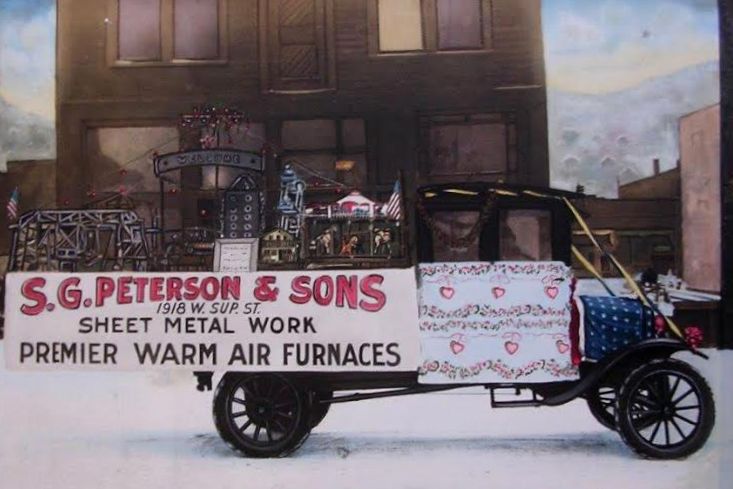
This painting by Edna Sandberg Peterson is a reproduction of an early 20th Century photo of S. G. Peterson & Sons entry in a local parade.
Richard Peterson graduated from Denfeld High School in 1944 and served in the Army during World War II and the Korean War.
“My father grew up down on 40th Avenue West,” Pickar said. “That was the ‘stomping grounds,’ as he used to say. As a kid he was always climbing up on the rocks and wading through Miller Creek. He loved the land, and when he had an opportunity to buy it he did, and he held on to it all those years.”
She said her father intended to either build a home on the land or find some other use, but he was surprised when Agenter built on the land he sold.
“My dad thought it would be extremely expensive to build and just didn’t think it would ever happen, I guess,” she said. “He never intended for it to be developed into large-scale housing, anything like that. … I think if my dad had wanted to develop it he would have done so years ago. The land has been in our possession for 42 years. I think the fact that it has stayed natural all these years speaks to the fact that my father loved Duluth and wanted to see the land preserved. That being said, it was his land. He wanted the right to do what he wanted with his land.”
The Politics of Preservation
Heightened zoning standards for Skyline Parkway were enacted in 2010 following construction of Agenter’s home. Duluth’s Unified Development Chapter, the official body of rules and regulations to guide land use and development, outlines special zoning and subdivision regulations for the “Skyline Parkway Overlay.” However, Froseth notes those restrictions do not apply to construction on the northwest/uphill side of the boulevard.
“When we established that we were concerned with the downhill view,” he said. “We want unimpeded views to the lake and harbor. (The Peterson land) is uphill from that, so it wouldn’t be affected.”
Skyline Parkway is sometimes inaccurately described as a National Scenic Byway, but it has never attained that status. It is, however, a State Scenic Byway, as designated in 2001. That status does not come with restrictions that affect potential development.
Duluth Mayor Don Ness said there are numerous private properties in the city that members of the public incorrectly perceive to be protected, and although the city takes interest in the idea of preservation, it must be careful to not take away the rights of land owners to develop their property.
“The city is not in the business of purchasing land for conservation,” he said. “If we had unlimited resources, we’d love to secure some of these lands, but unless there is a very specific purpose for purchasing land – whether it’s for a park or part of some city operation – there are so many privately owned parcels that are meaningful to somebody out there that we would be expending a tremendous amount of resources to keep private development from happening. We just don’t have those resources.”
Ness said the city has a strong relationship with the Minnesota Land Trust, a member-supported, nonprofit conservation organization working to protect natural and scenic land. He said working with the land trust is generally the best avenue toward preserving green space in the city.
Pickar had discussions three years ago with representatives of the city and the land trust about selling the Skyline property for the purposes of conservation, but those talks stalled because of the trust’s asking price.
“I’m the trustee of my father’s estate,” Pickar said. “I have a legal obligation to manage his assets properly and until the estate is settled I can’t entertain donation type of situations. But if there is a group of people passionate about preserving Skyline and can work with the city to come up with some kind of funding, I would entertain that thought.”
Kris Larson, executive director of the Minnesota Land Trust, said the Peterson land is “definitely still on the radar.” He said he’s been working with the city for the past four years to identify properties that are essential to the core green space and trail systems in Duluth.
“When we were chatting with (Pickar) a couple of years ago, the price she was looking for was well beyond what any appraisal could hit at, so at that point the city thought it would just be too expensive,” Larson said. “We can’t just spend anything on the property. We have to do it within rules and within appraisals and all of that, otherwise it’s seen as giving private benefits to somebody if you overpay.”
Larson said another option could be to negotiate a conservation easement on the property. The land would stay in private ownership, with restrictions established to limit what future owners could build. The landowner could be paid for giving up development rights and/or take advantages of tax benefits for the value of the easement.
“Chances are, if that happened, somebody would want to put up a home or have the ability to utilize it,” Larson said, “but it wouldn’t be sold for multiple units at that point, more of a limited development.”
Larson said a conservation easement is not his preferred option because of the visual affect even a small development would have on the land.
“Ideally, for the trail system and a host of things, it would be better to get it in public ownership,” he said. “When you look at the integrity of Skyline Parkway and the trail system that’s in kind of that backyard – that’s a really important piece that I think the city would be wise to secure at some point.”
Although talks between the land trust and the Peterson trust have been at a standstill for years due to the price disconnect, Larson said he intends to maintain an open dialogue with Pickar.
“Wendy has been very open and vocal about wanting to not see it completely developed, understanding that it’s important, and their love of Duluth and all of that,” he said. “They’ve been very good land owners to discuss this with.”
Recommended Links:
Leave a Comment
Only registered members can post a comment , Login / Register Here


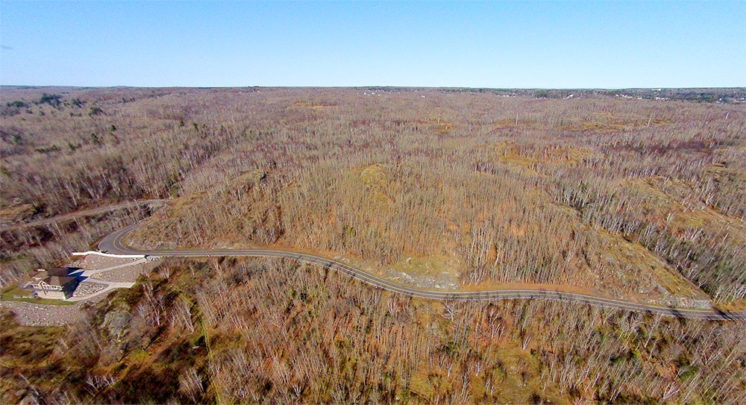
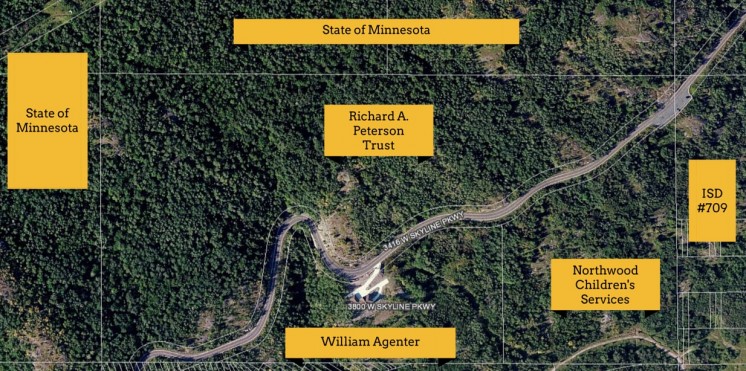

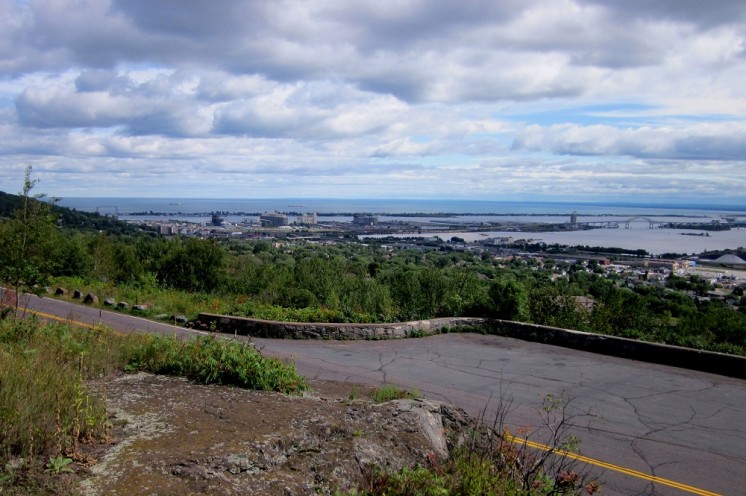
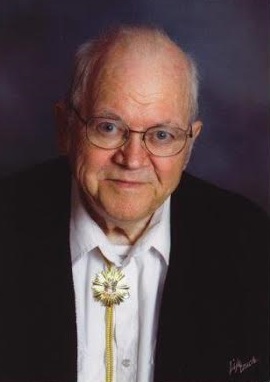

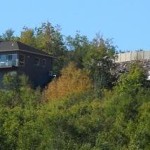

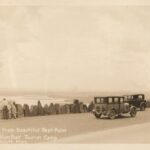







15 Comments
Paul Lundgren
about 10 years agoHerzog
about 10 years agoLane
about 10 years agovicarious
about 10 years agoDorkus
about 10 years agomarkryan
about 10 years agoJana Hollingsworth
about 10 years agowildknits
about 10 years agoJohn Hatcher
about 10 years agoannefluke
about 10 years agoDrew
about 10 years agoNick L
about 10 years agoHoppedDuluth
about 10 years agoHoppedDuluth
about 10 years agoRage Sage
about 10 years ago